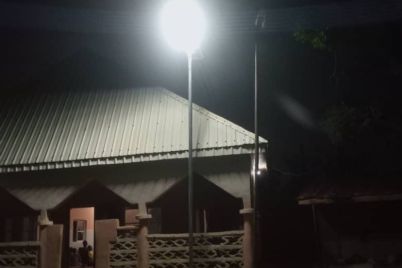
By Frank Meke
Niger State is, without dispute, Nigeria’s largest landmass—a territory blessed with abundant mineral deposits, vast rivers, rich inlets, and expansive forest ecosystems that serve as a natural resource laboratory. Its sweeping landscapes cradle farming communities and, if genuinely harnessed, could easily position the state as the nation’s food capital.
Yet, Niger State remains one of Nigeria’s most uncelebrated tourism enclaves. It hosts an estimated ninety-two forest and game reserves, including one of Nigeria’s best kept secrets in protected areas —Kainji Lake National Park—nestled in New Bussa, Borgu Local Government Area.
During the reign of the late iconic traditional ruler of Borgu, Senator (Dr.) Haliru Dantoro, New Bussa thrived as both a tourism magnet and a conservation hub. Home to the Kainji Dam, the Federal College of Wildlife, the Federal College of Fisheries, a Nigerian Air Force base, the Nigerian Army’s 221 Tank Battalion, and a federal girls’ college, the area flourished under his visionary guidance.
The revered Emir—who was like a father and mentor to me—leveraged his influence as a former senator, federal minister, and frontline traditional leader to elevate the cultural, tourism, and conservation value of Kainji Lake. His leadership birthed the famous Gani Durbar Festival, which he strategically aligned with the socioeconomic and political development of Borgu Kingdom. The grand equestrian displays, featuring skilled horsemen from across the West African coast—Ivory Coast, Gambia, Senegal, and Benin Republic—highlighted Borgu’s rich maritime and cultural heritage anchored along the River Niger.

One of the Emir’s most enduring legacies was the dramatic reenactment of the 1895 British invasion of Borgu led by Lord Lugard. Entirely funded by him, the project bridged historical, cultural, political, and diplomatic gaps between Borgu communities in Nigeria and across West Africa. In my book, The Race to Nikki, dedicated to his memory—with a foreword by former President Muhammadu Buhari—I chronicled the fierce Anglo–German rivalry to claim Borgu’s vast territory, much of which today forms parts of the Benin Republic.
Borgu, once ruled by formidable kings, remains a proud kingdom. But today, it faces a new and unsettling narrative—one driven by Niger State Governor Mohammed Bago, whose recent rhetoric targets Kainji Lake National Park as a supposed epicenter of insecurity, noting wrongly and mischievously that it was abandoned for fifty years.
Under Governor Bago’s watch, insurgency and poverty has worsened, culminating in the recent abduction of school children in Agwara. While his frustration is understandable, launching an aggressive retribution campaign against the state’s largest protected area—framing it as the driver of insecurity—is both regrettable and misguided.
Unlike thevgovernor in Borno, who have taken decisive roles in frontline security operations against jihadist incursions, Governor Bago has yet to demonstrate a clear military-strategic collaboration or actionable conviction to reclaim the 92 forest and game reserves that criminals exploit across Niger State.
It is true that at the height of Boko Haram’s terror, insurgents overran the eco-lodges within Kainji Lake National Park, occupying them briefly before being flushed out by the military. This mirrors the vulnerability seen in other protected areas bordering Benin Republic—our neighbours on the northern flanks.

But to weaponize these realities as justification for attacking a protected conservation asset—rather than strengthening security, increasing surveillance, and deploying better intelligence—is a dangerous narrative that threatens both conservation and community livelihoods.

Kainji Lake National Park is not the enemy. Neglect of rural communities, underinvestment, and the absence of coordinated security infrastructure are.
Governor Bago’s path should not be one of retribution, but restoration—restoring security, restoring confidence, and restoring the once-thriving tourism and conservation ethos that leaders like Haliru Dantoro labored to build.

